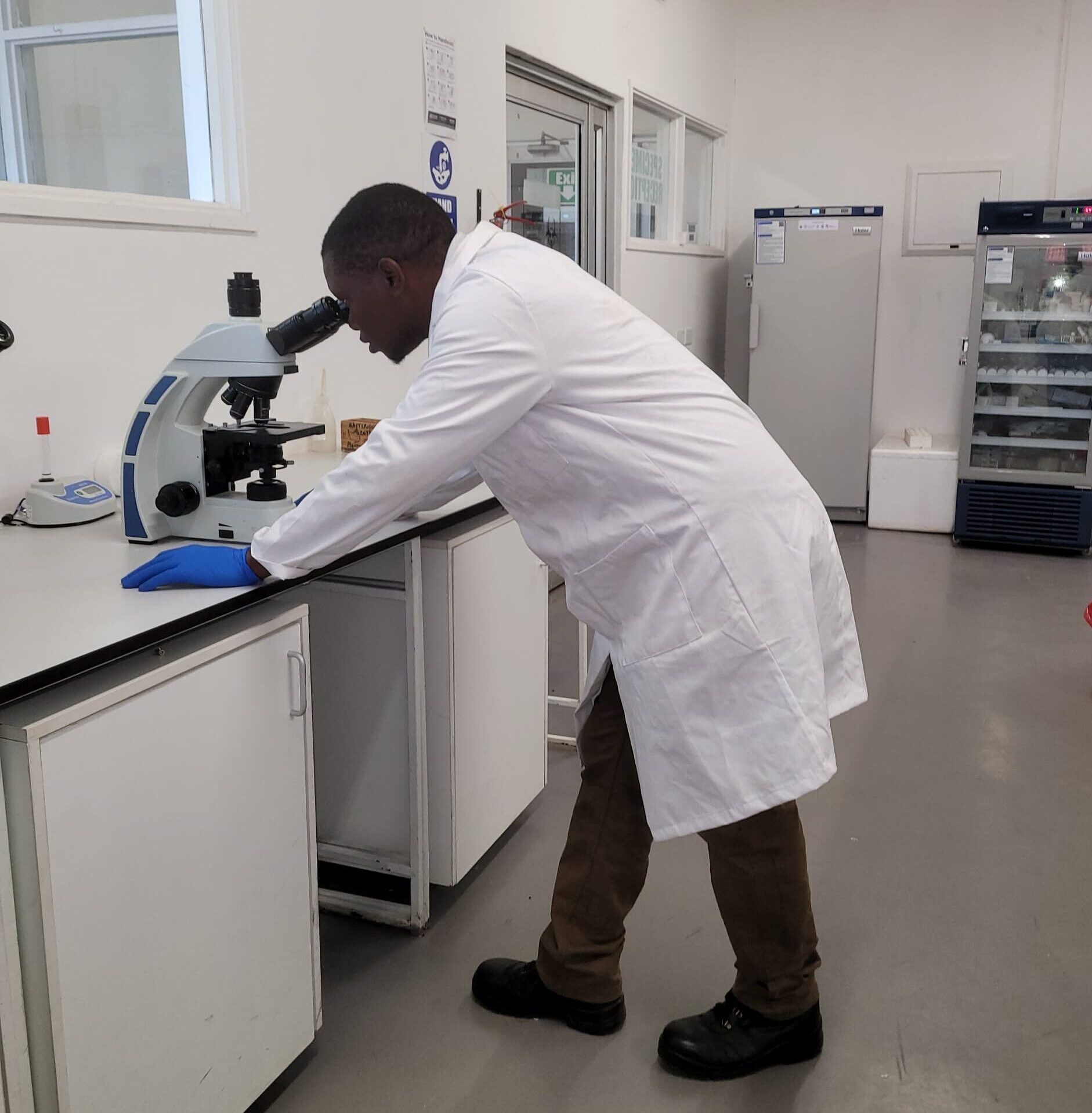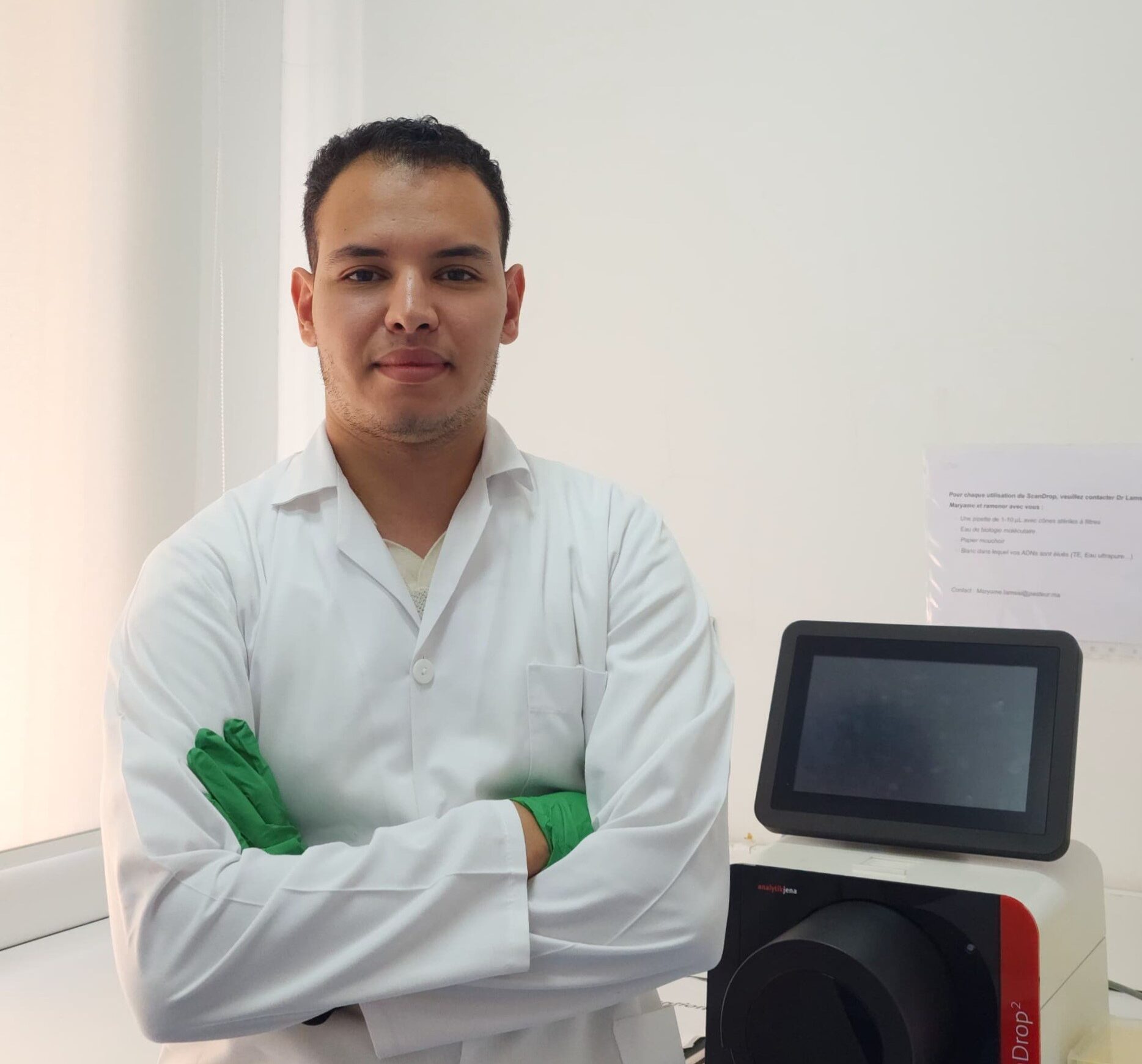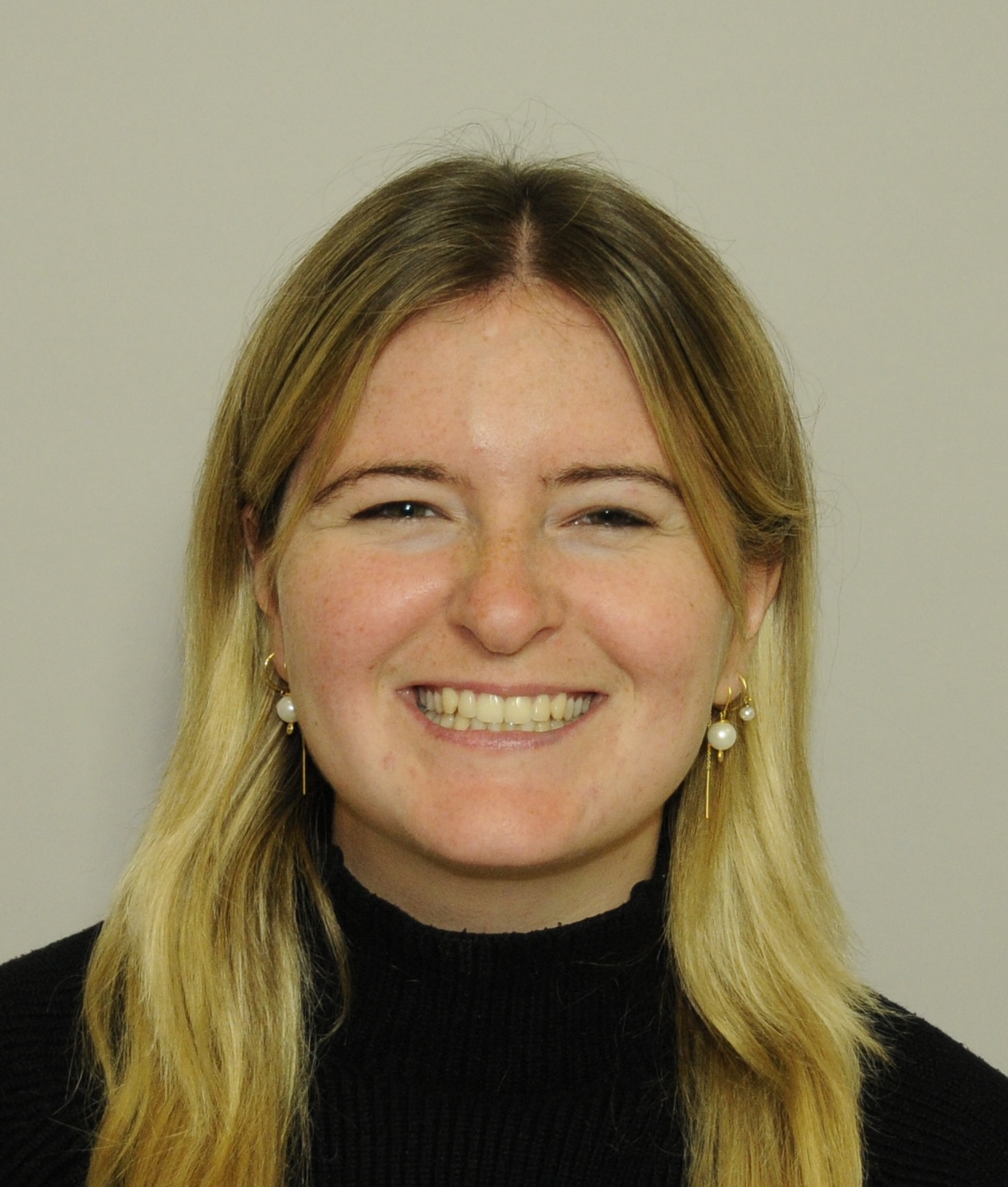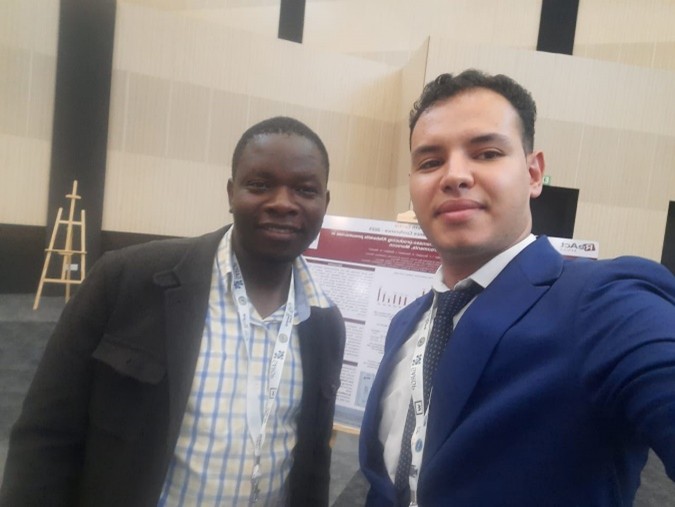The Technical University of Denmark (DTU), Fleming Fund regional grantee, presented on the SEQAFRICA project at the symposium ‘Beyond COVID-19: Pathogen Genomics and Bioinformatics for Health Security in Africa’, hosted at the African Union Commission in Addis Ababa, Ethiopia.
Genomics surveillance and outbreak detection: SeqAfrica empowers AMR researchers
In the heart of Africa’s fight against antimicrobial resistance (AMR), the Fleming Fund's SeqAfrica project is transforming the way researchers approach outbreak detection and genomics surveillance.
SeqAfrica, supported by a Fleming Fund Regional Grant led by the Technical University of Denmark (DTU), is strengthening genomic surveillance capacity for AMR across Africa. This provides laboratories with the skills to detect and respond rapidly to infectious disease threats through whole genome sequencing (WGS) and bioinformatics analysis training.
For Peter Katsande, a microbiologist in Zimbabwe and Fleming Fund Fellowship alumnus, and Aiddi Amine, a PhD student in Morocco, the training opportunity has been a gateway to collaboration, scientific growth, and real-world impact.

Peter working at a microbiology laboratory for genomics surveillance and outbreak detection at the Central Veterinary Laboratory (credit: DTU).
Peter has served in Zimbabwe’s Department of Veterinary Technical Services, working at the intersection of animal health, food safety, and disease surveillance. As a veterinary microbiologist, his passion lies in connecting laboratory results to practical solutions, especially through pathogen genomics. Amine, meanwhile, is in his second year of doctoral research, studying E. coli and Klebsiella pneumoniae in aquatic environments.
The paths of the two researchers met at SeqAfrica’s data analysis training. The online exercises are designed to mimic real-time hospital outbreak scenarios, which challenge participants to analyse WGS data, perform bacterial typing, and identify potential clones that present an outbreak.
Genomics data
For Peter, it was a continuation of his SeqAfrica journey, which began with online courses during the COVID-19 pandemic and included a hands-on WGS workshop in Ghana. For Amine, the simulated exercises were his first experience with the project, and a transformative one.
“I gained hands-on experience with realistic outbreak scenarios,” Amine shared. “It helped improve my bioinformatics skills and taught me how to collaborate and make decisions as part of a team.” He learned to use tools such as ResFinder, MLST, and CSI, and began applying these skills in his own research.
Following the SeqAfrica training, Amine incorporated WGS into his workflow to identify bacteria that don’t respond to frontline antibiotics − carbapenemase-encoding genes and extended-spectrum β-lactamases (ESBLs) − and other clinically relevant resistance determinants. These analyses have generated preliminary data that suggest Morocco’s aquatic systems may act as reservoirs for high-risk AMR clones. This highlights, from a One Health approach, the urgent need for genomic surveillance to inform healthcare across the human, animal, and environmental sectors.

Aiddi Amine, SeqAfrica training participant (credit: DTU).
Drug-resistant genes
Peter’s experience was equally impactful. The SeqAfrica training enhanced his experience of writing a research paper on E. coli in poultry by helping him analyse AMR data and construct phylogenetic trees. This involves a visual representation of the evolution of organisms, depicting how varied species are related through common ancestors.
The skills helped Peter to identify drug-resistant genes, characterise the diversity and transmission dynamics of ESBL-producing E. coli in Zimbabwe’s poultry sector, and map outbreaks of resistant pathogens. This contributed directly to the acceptance of Peter’s paper for publication by Microbial Genomics.
“The simulation showed how WGS can provide high-resolution insights into bacterial subtyping and outbreak tracing,” said Peter. “This is vital for AMR control, especially in countries like Zimbabwe, where outbreaks of Salmonella and cholera are common.”
Their career progression is a testament to what SeqAfrica makes possible: empowering researchers with the tools, knowledge, and connections to tackle AMR head-on.
Niamh Lacy-Roberts, SeqAfrica bioinformatics instructor

Valuable connection
Beyond the technical skills, SeqAfrica fostered a valuable connection between Peter and Amine. They reconnected at the Regional AMR Conference in Lusaka, Zambia, after initially meeting during the online WGS exercises.
This led to an in-person meeting, where they shared insights from their respective research. “Conferences are important platforms to share what we’re doing in our countries,” Peter noted. Amine agreed, adding that meeting experts in the field of AMR has helped him grow professionally. “It’s really great to connect with others and improve my knowledge,” he said.
Building on their experience with SeqAfrica, both Peter and Amine are planning to expand the application of genomic surveillance in their respective contexts.

Amine and Peter at the Regional AMR Conference in Lusaka, Zambia (credit: SeqAfrica, DTU).
Real impact
Amine intends to broaden his research to include longitudinal sampling of aquatic environments in Morocco, tracking the persistence and evolution of high-risk AMR clones over time. He plans to perform comparative genomics to link environmental bacteria isolates with clinical strains, helping to map transmission pathways between community and hospital settings.
For Peter, at the start of his PhD, the experience strengthened his capacity to produce high-quality surveillance data and translate findings into actionable interventions − antimicrobial stewardship, farm biosecurity, and One Health policy − driving real impact on public and animal health in Zimbabwe and elsewhere.
Health solutions
Both researchers emphasised that the technical skills, bioinformatics tools, and collaborative networks gained through SeqAfrica will be instrumental in designing their next studies. This has allowed them to analyse genomics data with confidence and communicate findings to policymakers to inform evidence-based public health interventions.
“Their career progression is a testament to what SeqAfrica makes possible: empowering researchers with the tools, knowledge, and connections to tackle AMR head-on,” said Niamh Lacy-Roberts, SeqAfrica bioinformatics instructor who led the online training that Amine and Peter participated in. “Through initiatives like simulated exercises and the Bioinformatics Community of Practice, the project is helping shape a future where science and collaboration determine AMR solutions.”
More Like This
The Fleming Fund has awarded an AMR surveillance project, ‘SEQAFRICA’, with an additional £2.4 million. SEQAFRICA uses the innovative technology whole genome sequencing (WGS) to improve antimicrobial resistance (AMR) surveillance and invests in training African scientists to help triple the capacity for gene sequencing across the continent.